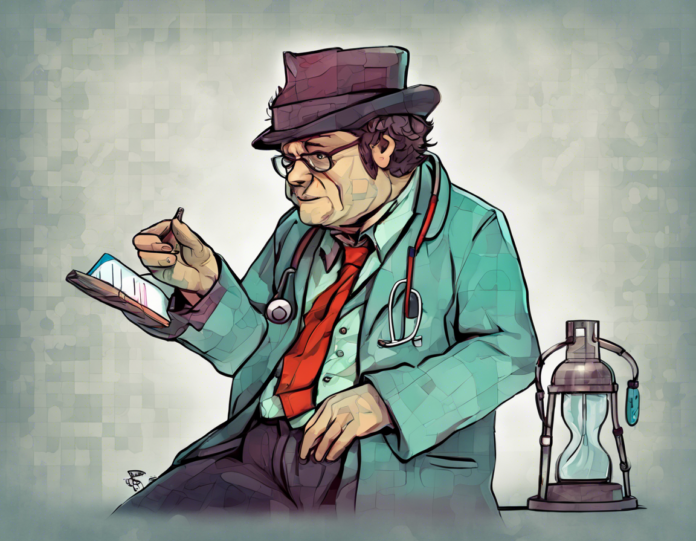Introduction
In the realm of healthcare, trust and integrity are paramount. Patients place their lives and well-being in the hands of medical professionals, expecting them to adhere to ethical standards and provide the best possible care. Unfortunately, the rise of rogue doctors has cast a shadow over the medical community, raising concerns about the harm they can inflict on vulnerable individuals. Autism, a developmental disorder that affects communication and behavior, is one such area where the actions of rogue doctors can have severe consequences. In this article, we will delve into the role of rogue doctors in the realm of autism, exploring the implications of their unethical practices and the ways in which they can endanger both patients and the reputation of the medical profession.
Understanding Autism
Before delving into the specific issue of rogue doctors, it is essential to understand the nature of autism. Autism spectrum disorder (ASD) is a complex neurological condition that typically appears in early childhood and affects social interaction, communication skills, and behaviors. Individuals with autism may have difficulty with verbal and nonverbal communication, exhibit repetitive behaviors, and have challenges in forming and maintaining relationships. Autism is a spectrum disorder, meaning that it manifests differently in each individual, ranging from mild to severe.
The Role of Rogue Doctors
Who are Rogue Doctors?
Rogue doctors are medical professionals who engage in unethical, illegal, or fraudulent practices that harm patients and violate the trust placed in them by society. These individuals may exploit vulnerable patients for financial gain, provide unproven or dangerous treatments, or engage in other behaviors that compromise patient safety and well-being.
Implications for Autism Patients
For individuals with autism, the actions of rogue doctors can have devastating consequences. These doctors may offer unproven or scientifically unsupported treatments that claim to “cure” or “reverse” autism, preying on the desperation of parents and caregivers. Such treatments not only fail to provide any benefit but can also be harmful, exposing patients to risks without any medical justification. Additionally, rogue doctors may perpetuate harmful myths and misinformation about autism, further stigmatizing individuals with the condition and impeding access to evidence-based care and support.
Ethical Considerations
Medical Ethics
The practice of medicine is governed by ethical principles that prioritize the well-being and autonomy of patients. Rogue doctors who engage in unethical practices violate these principles, undermining the trust and integrity of the medical profession. It is essential for healthcare providers to adhere to ethical guidelines and standards of care, especially when working with vulnerable populations such as individuals with autism.
Patient Autonomy
Individuals with autism have the right to receive respectful and informed care that is based on evidence-based practices. Rogue doctors who impose unproven or harmful treatments on patients with autism disregard the autonomy and dignity of these individuals, denying them the right to make informed decisions about their health and well-being. Respecting patient autonomy is a fundamental ethical principle that should guide all interactions between healthcare providers and patients.
Protecting Vulnerable Populations
Regulatory Oversight
To protect individuals with autism from the risks posed by rogue doctors, regulatory authorities play a crucial role in monitoring and regulating medical practice. By enforcing standards of care, investigating complaints, and taking disciplinary action against providers who engage in unethical behavior, regulatory bodies can safeguard the interests of patients and uphold the integrity of the healthcare system.
Educating the Public
Raising awareness about the risks of rogue doctors and promoting evidence-based practices in autism care are essential steps in protecting vulnerable populations. Parents, caregivers, and individuals with autism should be equipped with accurate information about the nature of the condition and the treatments that have been proven effective through scientific research. By empowering the public with knowledge, we can reduce the influence of rogue doctors and ensure that individuals with autism receive the care and support they deserve.
Conclusion
The presence of rogue doctors in the realm of autism underscores the importance of upholding ethical standards and promoting evidence-based care. By understanding the implications of their actions and advocating for regulatory oversight and public education, we can work towards safeguarding the well-being of individuals with autism and preserving the integrity of the medical profession. As responsible members of the healthcare community, it is our collective responsibility to identify and address the challenges posed by rogue doctors, ensuring that all patients receive the care and compassion they deserve.
FAQs
1. What are some red flags that may indicate a doctor is a rogue practitioner?
Signs that a doctor may be engaging in unethical or fraudulent practices include making exaggerated claims about treatments, pressuring patients to undergo unnecessary procedures, and refusing to provide information about their qualifications or credentials.
2. Are there specific treatments for autism that are considered unethical or harmful?
Any treatment that claims to “cure” or “reverse” autism is not supported by scientific evidence and should be approached with caution. Behavioral therapies, speech therapy, and occupational therapy are examples of evidence-based interventions for individuals with autism.
3. How can individuals with autism and their families protect themselves from rogue doctors?
It is essential to ask questions about the rationale and evidence behind any proposed treatments, seek second opinions from reputable healthcare providers, and report any concerns about unethical behavior to relevant regulatory authorities.
4. What role do medical ethics play in guiding interactions between healthcare providers and individuals with autism?
Medical ethics emphasize the importance of respecting patient autonomy, upholding professional integrity, and prioritizing the well-being of patients. These principles are essential in ensuring that individuals with autism receive compassionate and evidence-based care.
5. How can healthcare professionals contribute to addressing the issue of rogue doctors in autism care?
Healthcare professionals can play a proactive role in advocating for ethical practices, promoting awareness of evidence-based treatments, and collaborating with regulatory authorities to hold rogue practitioners accountable for their actions. By working together, we can create a safer and more supportive environment for individuals with autism.









